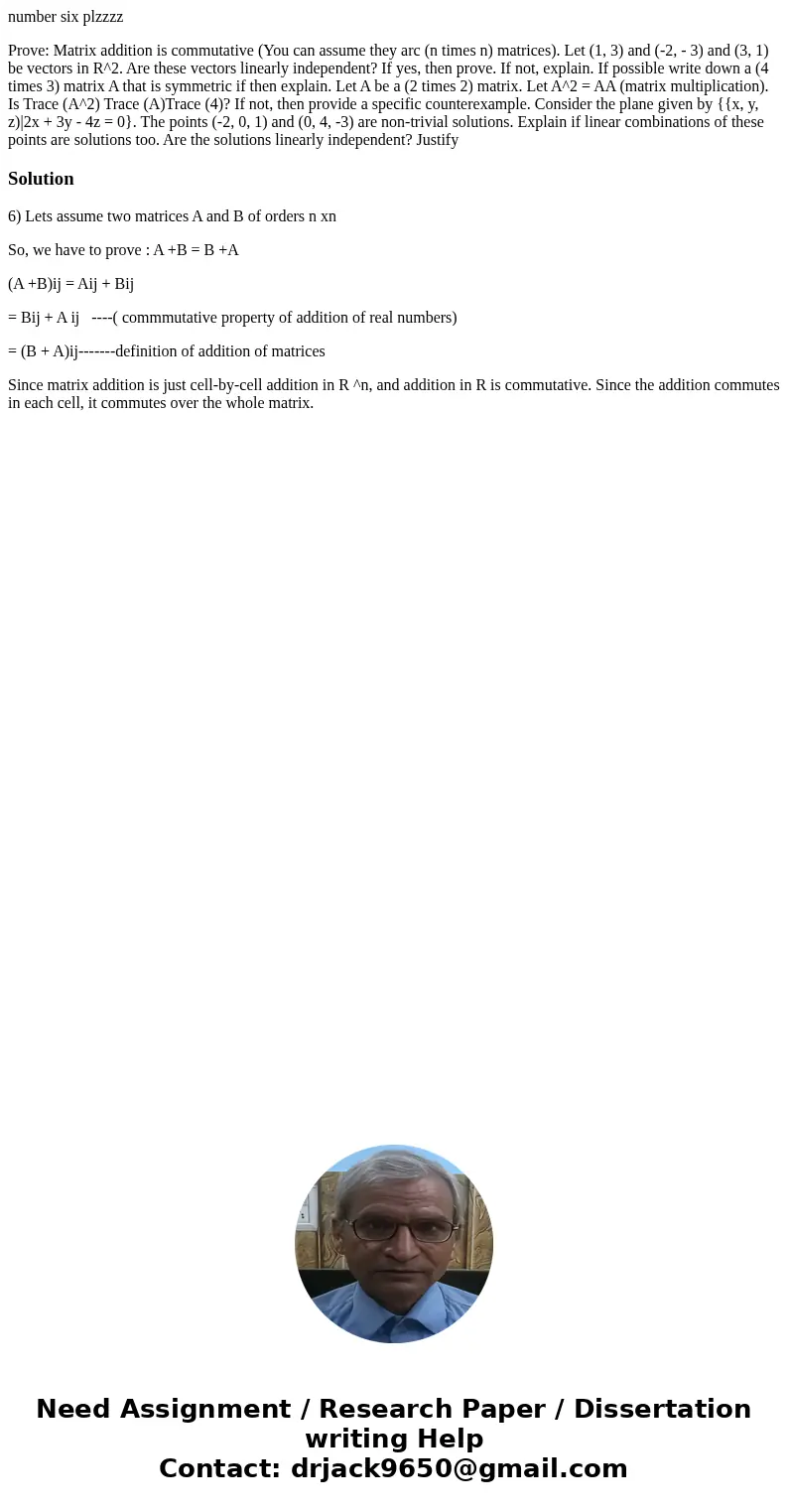number six plzzzz
Prove: Matrix addition is commutative (You can assume they arc (n times n) matrices). Let (1, 3) and (-2, - 3) and (3, 1) be vectors in R^2. Are these vectors linearly independent? If yes, then prove. If not, explain. If possible write down a (4 times 3) matrix A that is symmetric if then explain. Let A be a (2 times 2) matrix. Let A^2 = AA (matrix multiplication). Is Trace (A^2) Trace (A)Trace (4)? If not, then provide a specific counterexample. Consider the plane given by {{x, y, z)|2x + 3y - 4z = 0}. The points (-2, 0, 1) and (0, 4, -3) are non-trivial solutions. Explain if linear combinations of these points are solutions too. Are the solutions linearly independent? Justify
6) Lets assume two matrices A and B of orders n xn
So, we have to prove : A +B = B +A
(A +B)ij = Aij + Bij
= Bij + A ij ----( commmutative property of addition of real numbers)
= (B + A)ij-------definition of addition of matrices
Since matrix addition is just cell-by-cell addition in R ^n, and addition in R is commutative. Since the addition commutes in each cell, it commutes over the whole matrix.

 Homework Sourse
Homework Sourse